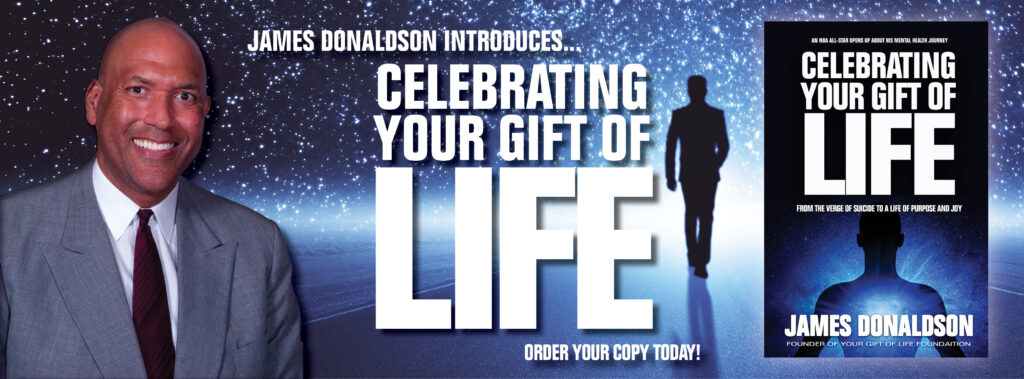
The country music star had previously talked about her battle with depression — a condition affecting nearly 15 percent of U.S. adults ages 65 or older.

By Becky Upham
 Singer-songwriter and actress Naomi Judd died by suicide on April 30, 2022
Singer-songwriter and actress Naomi Judd died by suicide on April 30, 2022The Grammy-winning country music star Naomi Judd, who was part of the mother-daughter duo The Judds, died by suicide at age 76, according to reports.
Her daughters, Ashley and Wynonna, released a statement to the Associated Press on Saturday, April 30. “Today we sisters experienced a tragedy,” the statement read. “We lost our beautiful mother to the disease of mental illness. We are shattered. We are navigating profound grief and know that as we loved her, she was loved by her public. We are in unknown territory.”
Naomi’s representative, Adkins Publicity, also issued a statement on behalf of Naomi’s family to Today. “Her husband, Larry Strickland, of 32 years will not be making any further statements,” the statement read. “Naomi Judd’s family request privacy during this heartbreaking time. No additional information will be released at this time.”
In both interviews and her 2016 memoir, River of Time: My Descent Into Depression and How I Emerged With Hope, Naomi Judd had openly discussed her ongoing struggle with depression — a mental health condition that’s not uncommon among older adults. In fact, nearly 15 percent of U.S. adults ages 65 and older have been diagnosed with depression by a doctor or another health professional, according to America’s Health Rankings from the United Health Foundation.
Depression and other mental illnesses are known risk factors for suicide, which is why it’s important to know the signs of each, says Allison Young, MD, an adjunct professor of psychiatry at the New York University Grossman School of Medicine in New York City and a psychiatry medical reviewer for Everyday Health.
#James Donaldson notes:
Welcome to the “next chapter” of my life… being a voice and an advocate for #mentalhealthawarenessandsuicideprevention, especially pertaining to our younger generation of students and student-athletes.
Getting men to speak up and reach out for help and assistance is one of my passions. Us men need to not suffer in silence or drown our sorrows in alcohol, hang out at bars and strip joints, or get involved with drug use.
Having gone through a recent bout of #depression and #suicidalthoughts myself, I realize now, that I can make a huge difference in the lives of so many by sharing my story, and by sharing various resources I come across as I work in this space. #http://bit.ly/JamesMentalHealthArticle
Find out more about the work I do on my 501c3 non-profit foundation
website www.yourgiftoflife.org Order your copy of James Donaldson's latest book,
#CelebratingYourGiftofLife: From The Verge of Suicide to a Life of Purpose and Joy
Link for 40 Habits Signup
bit.ly/40HabitsofMentalHealth

www.celebratingyourgiftoflife.com
Here’s what Dr. Young wants you to know about depression, trauma, suicide, and more:
Everyday Health: Can you talk about the link between depression and suicide, especially among older adults?
Allison Young: Many people develop depression at an older age, and there are different theories for why. Potential risk factors include loneliness, losing people they love at a higher rate as they grow older, and changes in one’s financial situation.
Regardless of the cause, depression — and certain symptoms of depression, such as feeling hopeless — is a risk factor for suicide.
Many people, especially older adults who either attempt suicide or die by suicide, do suffer from depression, but it’s important to know that suicide is not end-stage depression. In other words, depression does not always lead to suicide, and not all people who die by suicide are depressed.
Although depression is an important risk factor for suicide attempts and suicide completion, there are a lot of other risk factors for suicide, including:
- Other forms of mental illness, such as alcohol use disorder or other substance use disorders, anxiety disorders, bipolar disorder, and schizophrenia
- Family history of suicide
- Issues accessing healthcare
- Job or financial issues
- Legal problems
- Physical health problems
- Relationship issues
- Traumatic events, such as sexual abuse
- Unsafe depictions of suicide in media
EH: Naomi Judd discussed her struggles with depression and suicidal ideation. What is suicidal ideation, and when should someone seek help for it?
AY: Suicidal ideation means having thoughts or behaviors related to ending one’s own life. It sounds scary and it’s very stigmatized, but in reality, it’s not uncommon for a person to have suicidal thoughts. Suicidal ideation falls on a spectrum, and it’s important to figure out where somebody is on that spectrum to know how serious their situation is.
For example, say you’re struggling to get out of bed after a few difficult days with another tough day ahead of you, and you think, “I wish I could just hit snooze and sleep forever.” That’s on the milder side of what we’re talking about here, but it reflects that feeling of not being able to deal with the stresses of life anymore. That person may need help figuring out how they can take a break and restore themselves. If you’re having suicidal thoughts that are on the milder side, but you have no desire or plan to actually hurt yourself, that is something you could — and should — discuss with a mental health professional.
Suicidal ideation in someone who is already at a breaking point looks very different. They are thinking about death, and they are thinking they’d be better off dead or that their loved ones would be better off if they weren’t around. It’s even more serious in cases where the person is thinking about ways to attempt suicide. Those people are in imminent danger of harming themselves, and they need to be hospitalized.
I think it’s important to normalize these experiences — if you are having any thoughts of suicide, don’t think you’re not normal or that someone will think you’re crazy if you talk about it. Now is a really good time to start getting the help you need and find out what you can do to restore yourself so that the suicidal thoughts don’t progress any further.
EH: According to reports, Naomi Judd wrote in her memoir that her depression worsened when suppressed memories of a childhood molestation reemerged. How does trauma impact the risk for mental illness, and how should a person go about getting the help and support they need?
AY: A history of trauma is a risk factor for a wide range of mental illnesses and distress, including depression, as well as anxiety, post-traumatic stress disorder (PTSD), and other mental illnesses.
For anyone who has experienced this type of abuse and currently in need of help and support, I recommend reaching out to your easiest point of contact. For example, if memories of a traumatic event you experienced resurface in a way that is making you reexperience some of the distress it caused, I recommend seeking a therapist or counselor if possible. For people who don’t have any experience seeking mental health help or don’t feel comfortable doing so, reaching out to your primary care provider for help navigating the process is a good first step.
EH: What advice would you give to people who have had a loved one attempt or complete suicide?
AY: Suicide is a very complex issue. Although having depression and other mental illnesses can contribute, it’s really hard even for mental health professionals to predict who is going to attempt or complete suicide and who won’t.
If you’re a loved one of someone who has attempted or completed suicide, it’s important to give yourself grace. I think many people tend to feel guilty and wonder why they didn’t see it coming. But the truth is, it’s very complicated. Experts are just beginning to understand why some people do or don’t attempt suicide. Try to have compassion for yourself in this very difficult situation.


https://standingabovethecrowd.com/jamesdonaldson-on-mentalhealth-what-a-psychiatrist-says-naomi-judds-death-can-teach-us-about-depression-and-suicide-risk/


No comments:
Post a Comment